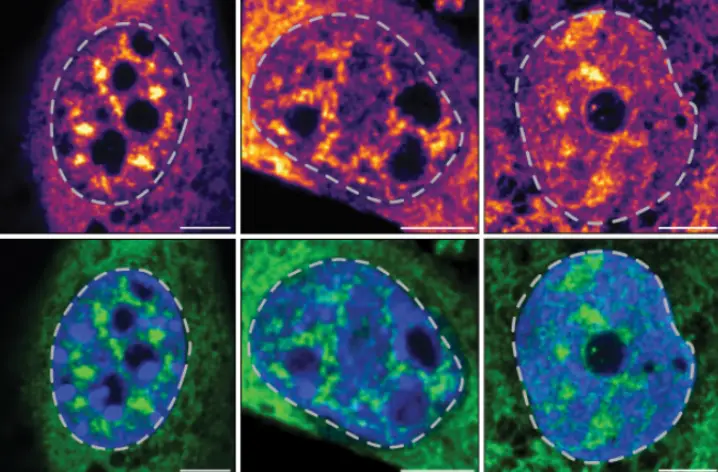
LA JOLLA, CA—Colorectal cancer is the fourth most commonly diagnosed cancer in the United States and the second leading cause of cancer death. According to the Colorectal Cancer Alliance, more than 50,000 people in the United States will die from colorectal cancer this year.
Miguel Reina-Campos, Ph.D., Assistant Professor at La Jolla Institute for Immunology (LJI), hopes his lab can help change those statistics.
“Curing colorectal cancer is not so much about targeting the primary tumor,” says Reina-Campos. “We need to go after the tumor cells that metastasize and end up in the liver, or in the lung, or in the brain.”
Reina-Campos recently received the Project Cure CRC Young Investigator Accelerator Award from the Colorectal Cancer Alliance to support a new project he calls “Neighborhood Watch.”
For the new project, Reina-Campos will work closely with UC San Diego Ph.D. student Harrison Ma to track how metastatic cancer cells move through different organs.
“We think of different organs, such as the lungs and liver, as their own neighborhoods, and these metastatic cells are trying to invade,” says Reina-Campos. “We need to train the local community of immune cells to be on high alert for incoming metastatic cells.”
Outsmarting metastatic cancer cells
Metastatic cancer cells are notoriously difficult to track. They can hide in organs for years before growing into new tumors. “That’s what patients, and their doctors, fear the most,” says Reina-Campos.
Reina-Campos and his lab have devised a way to spy on these cells. The team plans to use organoids, which are cancer cells that form small spheres, to shed light on where metastatic cancer cells go once they leave the primary tumor.
The LJI researchers will then use advanced bioinformatics and data analysis tools to uncover how immune cells and metastatic cancer cells interact in each organ “neighborhood.”
Reina-Campos says he’s grateful to receive support for this innovative work. “The Colorectal Cancer Alliance has been very generous in funding this project, and they’ve helped us realize the real needs in this field,” he says.
The Colorectal Cancer Alliance is the largest non-profit dedicated to ending colorectal cancer. The Alliance launched Project Cure CRC to accelerate scientific research and fuel development of cutting-edge treatments to help patients around the world. Reina-Campos is one of three researchers selected to receive the latest round of Project Cure CRC grants this year.
“By strategically investing in bold ideas and brilliant scientists, we’re accelerating the pace of progress toward treatments that patients urgently need,” said John Marshall, MD, Chief Medical Consultant, Colorectal Cancer Alliance, and Director, Ruesch Center for the Cure of Gastrointestinal Cancers at Georgetown University, in a recent press release.
Learn more:
LJI Cancer for Cancer Immunotherapy
Colorectal Cancer Alliance – Research funded by Project Cure CRC



